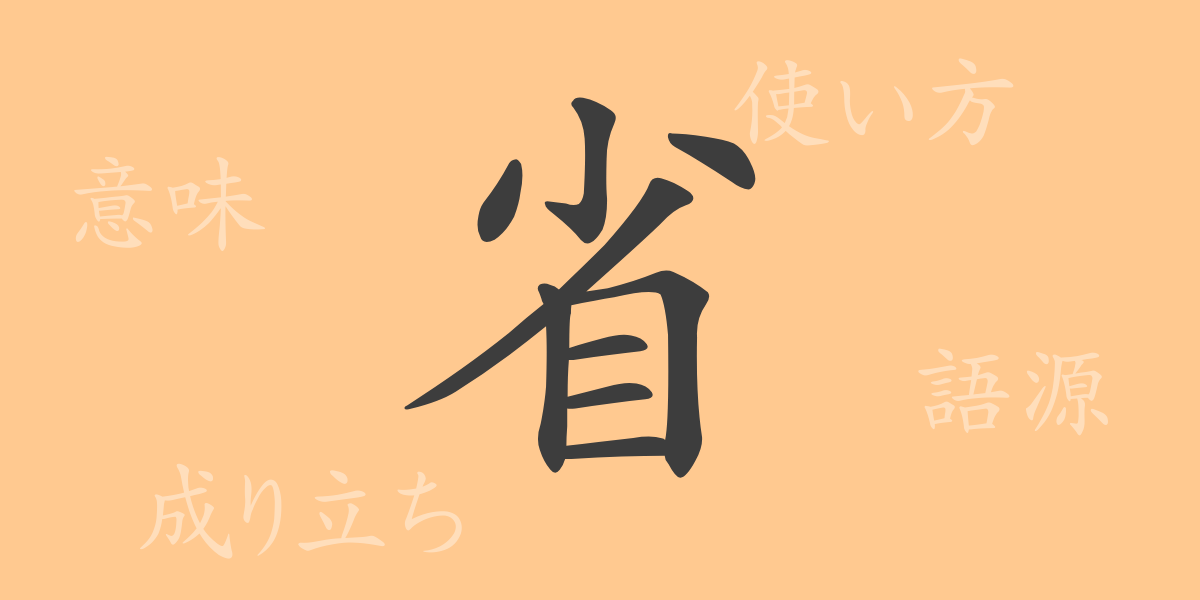The richness of the Japanese language often reflects through the use of kanji, which embody deep meanings and histories. ‘省’ (せい/しょう) is one such commonly used character, spanning a range from government ministries to self-reflection in everyday life. This article explores the etymology of ‘省’, its meanings, usages, readings, and the phrases and proverbs associated with it. Join us on a journey to deepen your understanding of Japanese language and appreciate the culture embedded within its words.
Origins of 省
The kanji ‘省’ originated from ancient Chinese pictographs. Initially combining ‘少’ (しょう, less) above ‘目’ (め, eye), it depicted the act of ‘looking less’ or ‘reflecting,’ leading to meanings associated with ‘reviewing’ and ‘reflecting.’ Additionally, ‘少’ represents the concept of reduction, adding a layer of meaning related to ‘cutting back’ or ‘omitting.’ Thus, ‘省’ embodies both the ideas of seeing and omitting, making it a complex character.
Meanings and Usage of 省
‘省’ primarily carries two meanings: ‘to see’ and ‘to omit.’ The first pertains to introspection or reflection, involving a review of one’s actions. The second relates to reduction or omission, such as cutting out waste or simplifying processes. Furthermore, in terms of government, ‘省’ refers to a ministry or department responsible for specific administrative functions.
Readings, Stroke Count, and Radical of 省
‘省’ reflects its rich meanings and structure through various readings and features:
- Readings: On’yomi ‘セイ’, ‘ショウ’; Kun’yomi include ‘かえりみる’, ‘はぶく’.
- Stroke Count: ‘省’ consists of 9 strokes.
- Radical: The radical of ‘省’ is ‘目’.
Phrases, Idioms, and Proverbs Using 省
The kanji ‘省’ features prominently in various idioms and phrases, reflecting its meanings vividly. Some examples include:
- 自省自戒 (じせいじかい): Reflecting on one’s actions as a lesson for the future.
- 時短勤務 (じたんきんむ): Reduction of working hours.
- 無駄を省く (むだをはぶく): To eliminate waste.
- 心配を省く (しんぱいをはぶく): To eliminate worries.
- 省エネ (しょうエネ): Energy conservation.
Conclusion on 省
The kanji ‘省’ offers a glimpse into the multifaceted nature of Japanese expression, signifying seeing, reflecting, and reducing. Used across political and everyday contexts, this character not only enriches communication but also serves as a fascinating aspect of cultural and historical understanding. We hope this exploration into ‘省’ enhances your appreciation of its versatility and the richness of expressions it supports.

























